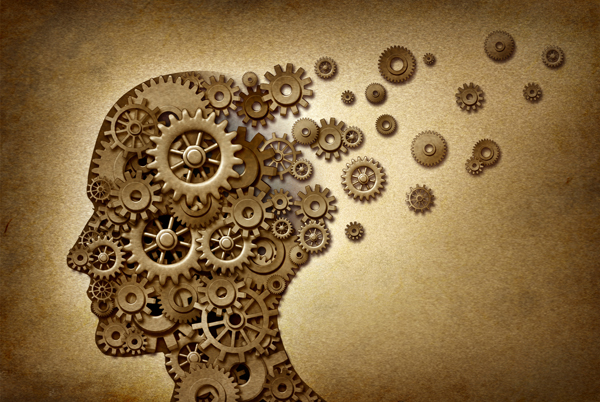Understanding Dementia: How to Help and Support People with this Disorder
If you’ve dealt with a person who has dementia, you are perfectly aware of the hardships that come with the territory. It’s impossible to offer help and support unless you understand the condition. The most important thing to note is that it is an umbrella term pointing to the symptoms of an ailment, rather than an ailment itself.
In other words, the memory loss dementia denotes is usually one of many symptoms that accompany diseases such as Alzheimer’s, vascular cognitive impairment, Lewy-bodies syndrome, and others. To retain a satisfying quality of life, the affected individuals require all the knowledgeable assistance they can get.
This is where you come in as a family member or a caregiver. Here’s what you can do to help.
Set the stage with positivity

The most important thing to remember is that people living with dementia know how to read body language even if they don’t recognize you. As long as you reflect a modicum of modest positivity and ‘normalcy’ in your behavior, you’ll be providing a better environment for them to relax, find their ground, and feel valued as a real person.
A positive attitude is alpha and omega of your support. It requires little effort and it makes all the difference.
Certain ground rules you need to establish
As a caregiver supporting someone with dementia, you need to have some ground rules set in stone. Make a list of pointers on a large sheet of paper which you can refer to now and then, especially if you feel that relationships in the household have been going sideways.
Now, here’s a twist: these rules are mostly there for you. And they go as follows:
- Keep your sentences short and your questions answerable. On some days, this will be more important than on others, but you’ll also be amazed at the opportunities to have meaningful and genuine conversations with them.
- Let them make manageable decisions – like their choice of dinner, means of transportation (car or on foot), a set of clothes, etc. This will instill in them a sense of agency and confidence.
- And while we’re on the topic of confidence, keep your intonation and enunciation distinct and reassuring. This will also improve the overall household atmosphere.
- And finally, always maintain your sense of humor. Encourage them to crack jokes, let go, and get silly – humor heals!
Aim for small habits
When it comes to encouragement, there’s another factor that contributes to the perception of agency and confidence in a person with dementia, and that is habit. Your job is to support behaviors that lead to their better cognitive performance and improved quality of life.
Even the smallest habits can mean a world of difference, such as going through a family photo album several times a week or writing a journal daily. Also, creative activities such as painting can do wonders for people with dementia, especially when it comes to memory retention.
Make sure to keep track
As dementia develops, there’s a greater risk of the person in question wandering off. The nature of the condition is such that they may end up confused, disoriented, and unable to recall why they’ve left home or where they are.
Fortunately, it’s possible to minimize the danger and better keep track of your loved one. At the very least, ask them to always carry their phone with them or, even better, get them to take a GPS tracker along.
Better yet, provide them with a portable medical alert tracker to ensure that they never leave home unsecured. In fact, getting more than one can be useful. You can place them in their coat pockets, jackets, jeans, or put them on a necklace that they’ll be wearing whenever they leave the house.
Give them as much freedom as humanly possible, but make this a fundamental condition.
Label everything you can
Label dispensers and stickers will become the most useful items in your ‘toolbox’ for the following period. Sticking labels on doors, drawers, cupboards, and cabinets to denote what they hold makes everyone’s life significantly easier. But why stop with the name game?
You can take it a step further by compiling a list of all the crucial phone numbers and printing out several copies. Of course, it would be impractical to just leave them lying around. If you have a chance, laminate the lists and hang them on the most frequented doors in the household.
Keep their living space limited and orderly
Naturally, to avoid confusion, you’ll have to make an extra effort to return all objects to their designated spots.
Now, if your loved one is living in a large home, you also might want to rethink their living space. Not that they are physically unfit to navigate spaces, but you’ll need to work with them to help ensure they’re comfortably nested in a space that supports their well-being as well as maximum functioning. You might need to move some furniture around and get rid of clutter to create a layout that eliminates confusion and feels right to them.
Physical activity affects longevity
Simplifying their living space doesn’t mean that they should stay confined to it. On the contrary, people living with dementia need as much physical activity as possible to stay fit and improve cardiovascular health and blood flow through the brain.
Dementia is far from a death sentence – this cannot be overstated – and physical activity correlates directly with longevity and cognitive health.
Now, when it comes to older individuals living with dementia, simple daily tasks that involve physical exertion are perfectly valid. Don’t treat them as victims; instead, keep their hands busy and give them simple tasks they can occupy themselves with.
Important note: elaborate activities might be too much to ask. On the other hand, dish-washing, vacuuming, and other household chores could be a great choice, especially because they’ll be pleased to see the fruits of their labor. Also, if you plan to keep this going, you can print out a schedule spreadsheet and keep track of all activities they’ve already finished, in case they forget.
Apart from that, you might want to look into yoga and see what benefits it manifests for people living with dementia. Yoga strikes the perfect balance between a demanding physical activity and a relaxing stretching exercise with meditative qualities that greatly benefit anyone.
Conclusion
At the end of the day, never forget: the person comes first, not the condition.
You need to prioritize bracing yourself for the forthcoming changes in their behavior, because it’s not merely about being patient in tight spots. To reflect a positive attitude and flexibility, you’ll need to work out the best possible and the worst possible scenarios, and be grateful when the latter don’t transpire, thanks to your efforts.
The naturally positive attitude that follows this frame of mind will have an encouraging and enriching effect on your loved one. And when you provide that kind of supportive environment for them, you might just be surprised what you can learn from them – and the entire experience.
Sarah Kaminski earned her bachelor’s degree in Health Sciences. Due to her parent’s declining health, she decided to become their full-time caregiver. Now, she takes care of her loved ones and writes about the things she learned along the way.
Sarah is a life enjoyer, positivity seeker, and a curiosity enthusiast. She is passionate about an eco-friendly lifestyle and adores her cats. She is an avid reader who loves to travel when time allows.
References
- “20 Reasons Why We Need to Know the Early Life History of ….” 16 Apr. 2019, https://changingaging.org/dementia/20-reasons-why-we-need-to-know-the-early-life-history-of-people-living-with-dementia/. Accessed 24 Mar. 2020.
- “What Is Dementia? Symptoms, Types, and Diagnosis.” 19 Mar. 2020, https://www.nia.nih.gov/health/what-dementia-symptoms-types-and-diagnosis. Accessed 24 Mar. 2020.
- “Caregiver’s Guide to Understanding Dementia Behaviors ….” https://www.caregiver.org/caregivers-guide-understanding-dementia-behaviors. Accessed 24 Mar. 2020.
- “Answers To The Most Important Questions About Alzheimer’s.” 31 Mar. 2018, https://www.medicalalertbuyersguide.org/articles/answers-to-the-most-important-questions-about-alzheimers/. Accessed 24 Mar. 2020.
- “Dementia – activities and exercise – Better ….” 31 May. 2014, https://www.betterhealth.vic.gov.au/health/ConditionsAndTreatments/dementia-activities-and-exercise. Accessed 24 Mar. 2020.
- “Yoga for Everyone: A Beginner’s Guide – Well Guides – The ….” https://www.nytimes.com/guides/well/beginner-yoga. Accessed 24 Mar. 2020.



 Movement is one of the keys to preventing any disease, and encouraging at least three 30-minute sessions per week should be imperative. As diets, exercise regimes should be tailored to a patient’s needs and preferences. Instead of being made a chore, regular exercise should be an enjoyment and a clear avenue to improved overall health.
Movement is one of the keys to preventing any disease, and encouraging at least three 30-minute sessions per week should be imperative. As diets, exercise regimes should be tailored to a patient’s needs and preferences. Instead of being made a chore, regular exercise should be an enjoyment and a clear avenue to improved overall health.